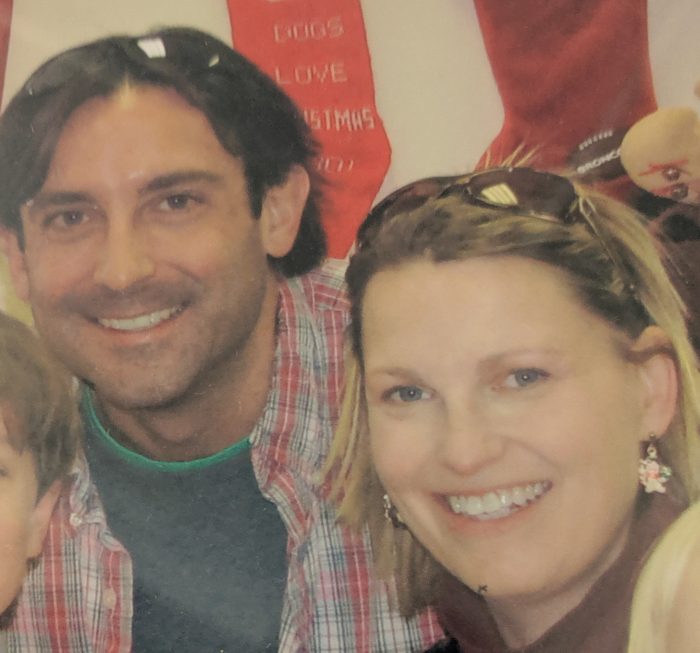I’m not a psychologist.
I’m not a certified addiction therapist nor a licensed relationship counselor. If you want psychobabble, this is not the article for you.
But I live my alcoholic marriage every day. And I study what alcohol has done to the relationships of hundreds of people. And ever since alcohol destroyed my confidence and proved most of my projections about my life false, I have been a better than average listener.
I have often asked why the children of alcoholics so often marry alcoholics themselves. It is one of the many counterintuitive aspects of this wretched disease.
Children of alcoholics should know better than the rest of us. Logic would dictate that they would never form serious, dependent relationships with people locked in battle with the toxin that rained chaos and isolation on their childhoods. But that’s not what happens.
Children of alcoholics seem to run back into the fire, and I wanted to know why. So I asked, and I listened intently. And I have consistently received the same two answers.
Many behavioral sciences professionals and adult children of alcoholics report that the kids of alcoholics marry alcoholics themselves because they have unfinished business. They were unable to fix their parents, so they set their sights on helping, or unknowingly enabling, their life partners. Transferring codependent behavior from a relationship with a parent to a codependent relationship with a spouse is terrifyingly easy.
It is not a stated goal. I’ve never heard a woman say, “My dad died of alcoholism, so I’m looking for a drunk with whom to settle down, have kids, and to save from self-destruction.” Like most things with the disease of denial, it is much more subtle and subconscious.
Unfinished business is like an unscratched itch; you can’t rest until you’ve soothed it.
My wife’s father was an alcoholic, and I am an alcoholic. But Sheri didn’t marry me because of unfinished business. She married me because of the second reason I’ve consistently heard that children of alcoholics marry alcoholics themselves. My wife married me because she wasn’t sufficiently repulsed by my alcoholic behavior. She’d seen it before, so it didn’t shock or threaten her. My behavior as an active drinker might not have been acceptable, but it was familiar to my bride. And familiarity breeds comfort.
One of our very first dates was to Sheri’s father’s funeral. He died of complications from alcoholism, and other bad life choices, at a relatively young age. I had not yet crossed the line from enthusiastic partier to addiction, so there was no lesson in his life or death for me.
As for my wife, she loved her father, but they were not particularly close. She never blamed herself for his death nor expressed regret for having not been able to save him. My mother-in-law divorced him when Sheri was young, and he gave his daughter limited and distracted attention as she grew up. She was sad, but not crushed. I was there to be a shoulder to cry on, and, selfishly, I thought his passing was a great opportunity for me to look empathetic and lovable to my future bride.
We both drank to excess in our early 20s when her father died. My behavior didn’t shock or repulse Sheri at the time, because she was running just as hard as I was.
But as we took on increasing responsibility, our drinking paths began to diverge as our relationship grew more serious. I still drank daily even after college, while Sheri began to limit her consumption to one night a weekend. I drank at home to unwind after work, while Sheri thought my drinking alone was a pointless waste because it missed the very social point to alcohol.
We moved in together after college. We got engaged a year or so later. As we moved toward making the commitment to spend the rest of our lives together, we began to fight with increasing frequency. Sometimes the arguments were her fault, and sometimes I was to blame. But one thing was growing more and more common: no matter who was to blame, my alcohol-induced reaction was irrational and over-the-top.
Minor infractions spawned in me major reactions. An inconsiderate act was met with a venomous wrath. The slightest little thoughtless remark could careen into an overnight spent hurling vile insults back and forth until we couldn’t even remember the impetus of the disagreement. Exhausted, angry, and utterly unloved, we would retreat to lick our wounds and do it all over again the next time.
All couples fight, and young couples argue about particularly insignificant things. We had to decide how important it was to have the toilet seat down and the toothpaste squeezed from the end of the tube. Irrational disagreements were normal.
My father drank every single day of my childhood, and he was extremely successful in career and marriage. So, damn it, I was going to drink every day, too, no matter how it made my fiancé feel. It was normal.
Sheri had witnessed explosions of anger from both her parents. She knew what an irrational, alcohol-induced argument looked like, and it didn’t raise the flags of warning as it might have in a woman who was not familiar with the destructive behavior. It didn’t seem strange to her. She might have hated our fights, but she could easily convince herself they were normal.
Normal disagreements. Normal drinking. Let’s get married!
Why do the children of alcoholics so often marry alcoholics? That which seems so counterintuitive as an abstract question makes perfect sense when we listen closely to the answers. But it begs the follow-up question: now that we understand the correlation, now that my wife and I are living the reality, what can we do about pulling our alcoholic marriage out of the ditch of addiction?
I found a University of Michigan study published in 2014 that shows a 20 percent increase in divorce rate among couples where one person abuses alcohol. Not surprising, right?
But what I have never been able to find is a study of the divorce rate of marriages where the alcoholic is in recovery. I think even potential researchers incorrectly assume that when alcohol leaves the relationship, the marriage gets better. That, after all, would be the intuitive assumption.
But alcoholism continues to baffle and fly in the face of logic. In my experience, and based on information from hundreds of direct communications with people in alcoholic marriages, things get much worse for the relationship when the alcohol is removed. Marriages that have adapted to the irrationality of alcoholism most often cannot survive the honesty of sobriety.
Roles change, resentments stand gleaming without the fog of denial, and the lack of trust means there is no foundation on which to build. Even in sobriety, often too much damage is done. Even without the alcohol, the disease refuses to release its choke-hold on love.
For Sheri and me, we had far more healing to do than we imagined. Apologies for transgressions don’t mean much when the victim knows her attacker will attack again. All of my apologies given during active drinking were worthless and left my wife full of resentments. All of the resentments had to be addressed in sobriety with patience and sincere remorse.
Trust cannot survive in an environment of broken promises and a hidden reality. Decades of promising moderation only to lose control of my drinking left Sheri unable to believe my promises. Even in sobriety. Even if I really meant them with the most possible sincerity.
Do you know what can’t survive without trust? Love.
Our sexual relationship had been ravaged by my alcoholism as well. As my wife grew increasingly repulsed by my very existence in her life, our sex became routine and dutiful. No love. No attraction. No intimacy. Just a few minutes of reluctant acquiescence from a sense of marital obligation and a need to keep the peace.
We had to fix all of that and more. I’m almost three years sober, and the work continues to rebuild trust, dispatch resentments, and nurture lost intimacy. We’ve made great progress, but there’s still much to be done. It turns out, the longer we accept the abnormal as normal behavior, the deeper the hole from which to climb. And the tools of relationship recovery are patience, empathy, sorrow, understanding, honesty, remorse, and enough openness to change to give the thing a chance for revival.
Sobriety is not just for the alcoholic. The spouse must understand the disease and want to defeat it as well. And the spouse is in the most impossible position of rooting for success while having no control over the alcoholic’s actions. It is no wonder why sobriety destroys so many marriages. There is no way to prepare for the challenges. Even if we recognize the dysfunction from the outset.
We must understand the challenge in order to overcome. Both of us. Drinker and spouse alike.
I don’t have a degree in psychology, but I feel reasonably confident in my understanding of why children of alcoholics marry alcoholics. Now we’ve got to transition that understanding into an end to the cycle of dysfunction.
Familiarity doesn’t equate to normalcy. Just because we’ve seen it before doesn’t mean we have to do it again.
~
If you want to understand the challenges of early recovery from alcoholism, I offer you my free Guide to Early Sobriety. It offers just as much to codependents as it does to alcoholics. If my story—the story of my alcoholic marriage in crisis—resonates with you, I bet the Guide to Early Sobriety can offer some answers to the most baffling questions.


 Share on bsky
Share on bsky





Read 18 comments and reply